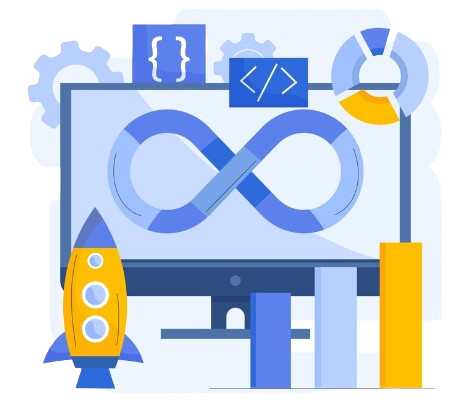DevOps Automation is a game-changer for modern software development, offering numerous benefits that streamline development processes and improve overall efficiency. By adopting DevOps Automation tools and practices, organizations can enhance collaboration, reduce time-to-market, and deliver high-quality software more reliably.
In the rapidly evolving tech landscape, organizations continuously seek ways to enhance their development processes to deliver software faster and more efficiently. DevOps Automation has emerged as a crucial strategy for streamlining development workflows, improving collaboration, and boosting productivity. This blog post explores the impact of DevOps Automation, the key tools and practices involved, and how it can revolutionize your development processes.
The Importance of DevOps Automation
DevOps Automation is essential for organizations looking to scale their operations and reduce time-to-market. By automating repetitive and time-consuming tasks, teams can focus on more strategic activities that drive innovation. Automation minimizes human error, ensures consistency, and enables continuous integration and continuous delivery (CI/CD), leading to more reliable and robust software releases. DevOps Automation is the backbone of modern software development, fostering a culture of efficiency and agility.

Key Tools and Technologies
Several tools and technologies are fundamental to effective DevOps Automation. These tools help automate various development lifecycle stages, from code integration to deployment and monitoring. Some of the most popular Automation tools include:
- Jenkins: An open-source automation server that supports building, deploying, and automating any project. Jenkins is highly extensible, with numerous plugins available to integrate with other tools and technologies.
- Ansible: A powerful automation tool for configuration management, application deployment, and task automation. Ansible uses simple, human-readable YAML files to define automation tasks, making it easy to learn and use.
- Docker: A containerization platform that enables developers to package applications and their dependencies into portable containers. Docker simplifies deployment and ensures consistency across different environments.
- Kubernetes: An open-source container orchestration platform that automates deploying, scaling, and managing containerized applications. Kubernetes is essential for managing large-scale applications and ensuring high availability.
- Terraform: An infrastructure as code (IaC) tool that allows teams to define and provision infrastructure using code. Terraform enables consistent and repeatable infrastructure deployments, reducing the risk of configuration drift.
Implementing DevOps Automation
Implementing DevOps Automation requires a strategic approach and a commitment to continuous improvement. Here are some best practices to consider when adopting DevOps Automation:
- Start Small: Start by automating simple, repetitive tasks and gradually expanding automation to more complex processes. This approach allows teams to learn and adapt without overwhelming themselves.
- Continuous Integration: Implement continuous integration to automatically build and test code changes as they are committed. This practice ensures that code is always in a deployable state and helps catch issues early in the development process.
- Continuous Delivery: Extend automation to the deployment process with continuous delivery. Automated deployments ensure that new features and bug fixes can be released quickly and reliably.
- Monitoring and Feedback: Implement automated monitoring and feedback mechanisms to track the performance and health of applications. Monitoring tools like Prometheus and Grafana provide real-time insights and help identify issues before they impact users.
- Collaboration and Communication: Foster a culture of collaboration and communication between development and operations teams. Tools like Slack and Microsoft Teams facilitate real-time communication and ensure everyone is on the same page.
Benefits of DevOps Automation
The benefits of DevOps Automation are manifold, and organizations that successfully implement it can expect to see significant improvements in their development processes. Some of the key benefits include:
- Increased Efficiency: Automation reduces the time and effort required to perform repetitive tasks, allowing teams to focus on more valuable activities.
- Faster Time-to-Market: Automated processes enable faster software releases, helping organizations respond to market demands and stay competitive.
- Improved Quality: Automation ensures consistency and reduces the risk of human error, leading to more reliable and robust software.
- Enhanced Collaboration: This automation fosters a culture of collaboration and shared responsibility between development and operations teams.
- Scalability: Automation tools and practices enable organizations to scale their operations and handle larger, more complex applications with ease.
Conclusion
DevOps Automation is a game-changer for modern software development, offering numerous benefits that streamline development processes and improve overall efficiency. By adopting these Automation tools and practices, organizations can enhance collaboration, reduce time-to-market, and deliver high-quality software more reliably.
Tanbits offers DevOps services that help organizations implement and optimize their DevOps Automation processes, ensuring seamless integration and continuous improvement. Embracing DevOps Automation is essential for staying competitive in today’s fast-paced tech landscape, and the time to start is now.
BACK










